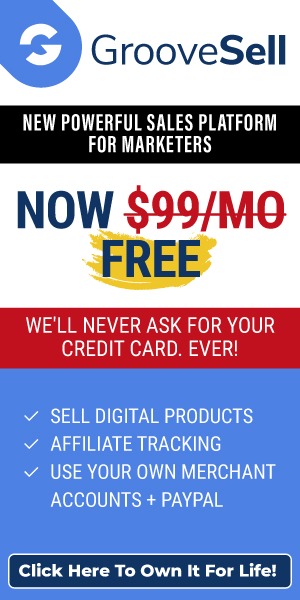
What Is CPA?
It’s almost like a bad joke:
Question: “What did the CPA marketer earn?”
Answer: “Two dollars and thirty-seven cents.”
Question: “What did the CPA marketer spend to get it?”
Answer: “Five hundred and fifty dollars.”
It’s happened this way, more than people like to admit – but it doesn’t have to be this way. The most common causes of CPA disappointment are:
- Insufficient market research
- Failure to track daily expenses
- Lack of basic business knowledge
If you’re shuddering because you’re afraid this would be you, well, that’s what this report is here to do – help you avoid heartbreaking CPA mistakes, and experience genuine, solid CPA success!
“Will I Be Rich?”
Let’s get something out the way, straight away: Unless you’re a marketing genius with incredible intuition, you are not likely to become a millionaire within weeks or perhaps even months off CPA marketing alone.
It’s rather like niche blogging: You will need to run multiple CPA pages in order to let the small amount of positive income each incurs add up to a nice little sum at the end of the month.
Question: “If it’s so Mickey-Mouse peanuts, why should I bother with it?”
Answer: “Because, properly done, it actually can bring in a nice supplemental income!
And there are offers you can find that really will bring in more money than the average CPA marketer receives.
And properly done, you can tap into high offers that easily bring you as much as $50, instead of 2 or 3.”
Let’s focus on the best way to reach this goal, as quickly as possible…
The Basics of CPA Marketing
Most people know that CPA means “cost per action”.
With regular affiliate marketing, your site visitor actually has to buy the product in order for you to get paid: The beauty of CPA marketing is that, while sales conversions do apply in some cases, your site visitor usually has to take a lesser action.
He has to perform one of the following:
- Simply click through
- Provide a zip code
- Provide an email address
- Provide a name and email address
…Or any other combination of contact details.
In an age where online security is at the forefront of peoples’ thinking, and most internet users are both jaded with advertising and savvy to spurious offers, how do you get your site visitor to part with his jealously guarded information?
Answer: You make him want to click on that link, or give up his contact detail. You make it harder to refuse than it is to comply.
You show him how easy it is just to enter a zip code. And there’s only one way to do that..
You must provide him with an enticing reason – one he can’t resist. You must let him see clearly that the benefit of giving up that email address or zip code is five times greater than ignoring it. (And part of this involves getting him to trust you.)
And it should feel totally natural, as in it’s the next logical step. (The only logical next step!)
Usually, you only have to inspire your reader to perform an action – he doesn’t have to buy.
The key to doing this every single time? Research, of course.
But there’s a specific way the best and most successful marketers go about performing this – and it isn’t the way most newer marketers think.
Mistake # 1 – Keyword Research.
This is where most newer marketers eagerly start, armed with the latest edition of Market Samurai or Micro Niche Finder, or whatever hot keyword research program they’ve discovered.
Keyword research is very important – but not at this stage!
Market research only starts with identifying your demographic. Next, you have to put a face to him, and single him out.
You have to pluck up the courage, and say hello to him, one on one, in the school parking lot.
Mistake # 2 – Thinking a demographic is your target customer.
A demographic is simply a generic group, based on statistics – not a person. Yet this is where most people stop, when initially researching their market.
But what happens in real life? Could you even present a suggestion to that particular man in the parking lot at this point, let alone sell him something?
What do you think the reaction would be?
“Sir, would you like to fill in this form with your full name, address and phone number?”
He’s likely to stare at you suspiciously and snap: “Sorry. Don’t have time right now.” And dash off, not making further eye contact. (He’ll avoid you, in future.)
Yet that’s the equivalent of what happens when the average person “researches” a target market, and says, “Right. 30-something. Caucasian.
Looks like he dresses okay. He’s in a school parking lot, so he’s probably dropped off a kid.
That’s my unique customer…” And dashes off a minisite based on that information alone.
The end result? It feels as natural as one of those screaming commercials on TV. The ones that appear between 3 a.m. and 6 in the morning.
But let’s take a deep breath, and rewind… We’re going back to that school parking lot…
Once you’ve got up close and simply said a friendly “hello”, he’s no longer just a generic “parent” or “guy between 30 and 50”.
He’s someone you can identify a little more deeply and individually.
He’s “that guy in the black overcoat who looks about 32, and always wears the checkered scarf in red and black.”
If I asked you, you could probably tell me what color his hair was, and if he was Caucasian or Asian; and whether or not he looked like he was barely scraping by, or whether the distinctive overcoat and scarf looked like it came from a trendy designer, giving you the impression he makes well over $100,000 a year.
But you don’t stop there. The next day, you get into a conversation with him
- you “engage” him. You discover what you both have in common – and where you diverge. You find out that he has 3 daughters under the age of 10; that his big passion in life is golf; and that he absolutely hates the color lilac. You discover you both went to the same university (just different years). He admits he’s about to buy a brand new car, and he’s been thinking about a hybrid, because even though he’s not a rabid environmentalist, he just can’t ignore the problem of pollution any longer. And gas costs too much.
At this point, you could probably tell me the color of his eyes (after all, you stared into them for an hour at Starbuck’s, where you both discovered you like Lattés with chocolate sprinkles).
And you could probably unhesitatingly tell me, “Oh no. There’s no way Don would buy a Ford F150 pick-up truck, with all the bells and whistles – he’s probably going to go for a hybrid, this time around. He’s just not a honkin’ big pick-up truck kind of guy; and besides, he has 3 young daughters and he and his wife have decided not to run two vehicles, because he isn’t quite as wealthy as he looks. He works as an intermediate draftsman at an architectural firm, and they’ve just started sending him out to interview potential clients. He’s going to want a vehicle that looks professional and upscale – even though price is definitely a factor he has to focus on.”
That’s the major portion of the “research” you need to be doing, in a nutshell: Getting to know who your visitor is.
You can speed it up, you can know good shortcuts to take – but you can’t force it.
You can take action quickly… but you do have to get to the chatting stage first before you “pitch” your offer. (Not literally, of course… but you do have to know your reader as well as you got to know Don.)
Based on that information, would you have confidence creating a minisite or blog to attract Don that contains hybrid car reviews?
At this stage of your relationship, of course you would!
You already know it’s probably going to attract him, if you populate it with reviews of the top 10 vehicles being currently sold – especially if you focus on the 3 hybrids among them.
You’d easily be able to find a spot on the page to insert a sign-up box (in an attractively-designed sidebar – that isn’t lilac).
You know that if it’s an offer that says: “To obtain a coupon for $100 off the purchase of any hybrid automobile from a Ford dealer in the state of Michigan, fill in your zip code now”,
Don is likely going to be interested to the point of giving up his zip code (since you both live in Michigan).
That’s exactly how “market research” is done. And what it really means.
Getting to know:
- What your visitors problems are
- What’s on his mind right now
- What’s likely to be on his horizon soon
- What he’s thinking about a lot
- What he’s secretly drawn to
- What he likes
- How much he has to spend
- What his financial concerns are
- What he would find appealing to the point of being irresistible
But How Do You Get Him To Find Your Site?
That’s when you finally get to “keyword research” – the place most people start! After you’ve put a name to the face, and gotten to know your ideal potential customer.
Hopefully, you do know how to perform keyword research, at this point, so we aren’t going to linger over that.
No matter what amazing keyword research software you have, however, I would recommend starting like this:
- Keep yourself in your unique site visitor’s shoes: Ask yourself “What is Don going to search for? What words would he use?”
- Go to Wordtracker’s Free Keywords tool, and enter that search
As you go through your usual following keyword research steps, you’ll be more likely to come up with targeted results if you’ve started from a position of strong market research and knowing your unique visitor really well.
Keep it simple – after all, people like Don don’t jump through convoluted thought processes when they start looking on the net for information they really need.
They just type in “best hybrid cars” or “hybrid car pros and cons” or “hybrid car reviews”.
But What Does All This Have to Do with CPA?
The blunt answer is: “Everything”.
Thorough market research, finished by simple but targeted keyword research, is the key element, the “missing link”, that separates people who are successful at CPA marketing from those who spend $500 on a PPC ad in order to make $2.37 on a CPA offer.
It’s the root at the bottom of the CPA tree.
If those roots are too shallow, or spindly and inadequate, you aren’t going to get a strong, healthy tree that bears a ton of fruit, right?
But now that we’ve got that established, it’s time for an overview of what you’ve been waiting for… CPA Marketing.
Which CPA Offer Appeals to You?
You can get involved in CPA marketing through several different types of offers.
As you try CPA marketing out, you may find that you feel really uncomfortable with some types, and perfectly happy with others.
| Types of CPA Marketing | ||
| Email lead captures | Usually requires your site visitor to “enter your email address for more information” (or a free eBook, etc.) | Average Payout: Anywhere from 85 cents to $1.20 per lead |
|
Free Product Offers |
Where your site visitors get something concrete in return for submitting their information (e.g. free sample, gift card, discount coupon for restaurant, etc.). This type of offer can generate a high click-through rate, but note that you are usually only paid if a sale results |
Average Payout: Anywhere from $17-45 |
|
Lead generation |
Involves capturing a little more than just an email address – usually first and last name, address, and perhaps even phone |
Payment varies |
|
Pay-Per-Sale |
High end products with large commissions These are the CPA offers that can make a real difference to your income – but this is basically affiliate marketing |
Best Payout: $60-300 |
|
Zip Code lead captures |
$1 per lead. |
|
A Crucial Step
Before throwing yourself wholeheartedly, do take the time to actually enter and check out offers like these.
Run searches in Google for words like “insurance + review” or “free gift card” to find blog sites that contain CPA ads.
One thing that will strike you straight away is the many results that come up exposing “scams” connected with these CPA offers.
That is why it’s crucial you check out these offers yourself, before blithely building a site around them.
And why it’s a good idea only to find offers through reputable CPA networks.
CPA networks, and How They Work
The first thing you have probably already realized is that there are a lot of shady companies out there, and you don’t want to work hard to gain Don’s trust, then send him to a company that doesn’t deliver what it promises – worse, is out to scam him!
One way to protect yourself – and Don – is to join a CPA network.
Unfortunately, it’s hard to tell what benefits each one offers, until you’ve signed up and tried them out.
3 highly reputable companies to start with are:
Clickbooth
Pepperjam
ShareaSale
Later on, after you’ve got the hang of CPA marketing, you might wish to try a few more. Here is a sampling of better-known CPA networks:
Adfish
Azoogle
AZN Network
Clickbooth
Hydra
Linkshare
Neverblueads
Offerweb
Ourfreestuff
ROI Rocket
ShareResults
Xy7.com
Getting your Foot in the Door
The first thing you’ll discover: You will experience a short waiting period, while the CPA network you’ve selected considers your application.
Sometimes, your application is rejected – and sometimes, there’s no indication why.
If this happens to you, don’t waste any time worrying about it. Move on, and try another.
Here are some solid tips as to what CPA networks are looking for – and what will often make them unhesitatingly reject an application…
| What CPA Networks Like | What CPA Networks Hate |
| – Experienced marketers | – Obvious “newbies” or amateurs |
| – Established websites
– Websites already set up and optimized for the product |
– Marketers who don’t have a website (or one that is properly focused on the offer)
– Marketers who don’t know how they’re going to promote the product |
| – WordPress blogs hosted on your own site, with a properly focused keyword as your .com domain title | – A blog or website hosted on a free site |
| – Full contact information (especially a phone number where you can be reached during business hours) | – Any indication that you’re not a “real person”
– Incomplete contact information (especially no phone number) |
2 Critical factors about CPA Networks
To understand what’s going on here, you have to realize that CPA networks are 100% responsible for results to their advertisers – the guys who are paying them big bucks.
It’s critical that they produce the results they’ve promised the advertisers, and their reputation rides on using marketers like you who present a professional appearance in every aspect of their business.
In other words, they have as big an investment in you as you do in their network. It’s just not monetary, in the strict sense of the word.
That is why you need a professionally developed website or blog to lead them to, with original content and a focused approach, and you need to avoid questions or omissions that will mark you as a “newbie” – or worse, an amateur marketer who is not serious about getting targeted, profitable results.
The second thing you need to know up front is that providing them with a phone number is absolutely crucial, because most legitimate CPA networks will phone and “interview” you.
This is a safety precaution from their end – and the fact that they need one is a good sign for you.
They want to check out that you’re who you say you are and that you have a grasp on CPA networking.
You don’t need to be intimidated by these “interviews”. The big question they will ask you is probably: “How do you plan to market this product?”
If you’ve done your market research properly, you’ll probably already be brimming with ideas (and we’ll get to some suggestions shortly!)
About Your Website…
There are 2 ways to go, when setting up your CPA offer website: Using an old site you own and revamping it to suit the product or purpose (CPA networks like websites with history)… or setting up a brand new one, with a generic but subject-appropriate domain name: For example, if our friend Don is your target customer, you might have something like “besthybridcars.com” or “hybridcarreviews.com”.
Static Sites vs. Blogs
It doesn’t really matter whether or not you choose a static website or a blog
- the important thing is that it should look professional and well-designed.
There are many great mini-site templates and blog themes for sale (and free) on the net, so you are not stuck with hiring expensive web designers.
Choosing A Strong Domain Name
It’s getting harder and harder to find good keyword-based .com domain names that have not been snapped up by companies hoping to bleed people of hundreds of dollars by selling them, but here are some tips to help you get around this:
Just add these words to your main long-tailed keyword:
- Best
- Reviews, review
- Solutions, solution
- My
What to Do if There are No .Com Versions of your Keyword Available…
If all else fails, go for a .org extension.
Many experts will tell you not to do this, but due to the nasty practice of “domain-snapping”, sometimes it becomes the only viable alternative.
The old convention about .orgs being only used for non-profit organizations seems to have been chucked firmly out the window.
In short, you will now see “.org” as a common extension on many blogs; and many marketers quietly resort to this alternative, and experience solid success with it – if they’ve taken the time to make sure all other elements of their site are well- researched, and set firmly and professionally in place.
Yes. You can start out with one website, and plan to add more, if your CPA subjects differ.
CPA Examples
What does a CPA offer actually look like? With the most skillfully placed ones, you may not even realize that’s what you were seeing!
Let’s take a break here, and have a look at some random samples…

A. This ad is placed beside short, written reviews on an “insurance review” blog site.
The action to be taken is a simple click-through…


B. The action required for the sample above requires postal code entry…


C. The CPA offer on the right requires an email address to be entered by your site visitor…
(*Notice how the sign up box on the right in the above example blends in with the site content, using the same colors. This is a key strategy in making a CPA offer feel “natural”.)


D. This is a typical “free sample” or “free gift card” CPA offer. Your site visitor is required to enter an email address and select the type of card they’d like to receive…
(Other “free offer” cards might promote free samples of toothpaste or skin care cream, a free pass to an amusement park, a discount coupon, etc.)
CPA Design
As you might have picked up from the previous samples, one of your most important strategies in improving your CPA offer click-through rates will be to make your CPA ads blend in to your site content.
One way is to remove ad borders and literally blend the sign up box into the page, as with example C.
In example D, immediately above, the site owner was blatant about the CPA offer – he or she “disguised it” by making it the only content on the page!
With example A, the fact that the Kofax offer is an ad is undisguisable – but the site owner helps it feel less obtrusive by making the sub-heads pick up and use the same blue in the ad.
Again, with example B, the photo layout of the CPA offer makes it hard to “blend” – but the site owner does so quite well by making it a continuation of the topic under discussion in the site content. (In other words, it’s totally relevant to the page content.)
In other words, the last thing you ever want to do is make your CPA offer stick out like a sore thumb, by amateur mistakes such as:
- Using completely different colors from your site headers, subheads, link colors,
- Using contrasting background colors
- Using screaming, “in-your-face” colors, or flashing animations
- Using heavy borders
Let’s compare the right way and the wrong way to integrate CPA ads into your site page…


Figure 1: The right way…
With the above example, you barely even notice the CPA ad on the right. Entering your email address and getting a quote just seems to be a service of the site…
But what happens if the site owner presents a CPA offer that is:
- Out of context (not related to the subject being discussed)
- Jarringly different from the theme colors and design scheme
Well, it might look something like this…


Figure 2: The Wrong Way…
Think about it: Even if you personally like screaming neon colors, which ad would you be inclined to click?
The one that is a natural continuation of the burning subject on your mind – finding a safe vacation spot – that just requires you to quickly fill in your email address…
… or the totally unrelated offer, that screams “ADVERTISEMENT!” in SensSurround?
“Is This Really for Me?”
At this point, having checked out typical CPA offers and given a thought to design, you’ll either be feeling interested at the least, excited and eager to get started at the most…
…or you’ll be starting to realize, this really isn’t for you.
Whatever you decide, go with your gut instinct. There are plenty of marketing methods out there, and it’s important to find one that’s comfortable.
But just remember, there are also multiple ways to promote your CPA offer too.
If running a review blog doesn’t appeal to you, you might want to try some other method, such as email promotion, article marketing or video creation.
Ways to Promote your CPA Offer
The major question you may be asked by your chosen CPA network concerns how you plan to showcase and promote your CPA offer.
It doesn’t really matter what you answer; that is, what method(s) you choose – as long as it makes solid business sense.
When you are first starting out, filling out applications for CPA networks, select:
- Text Links
- PPC
- Banners
If you don’t want to answer questions about PPC from the rep who calls, don’t select “PPC.
But selecting Text Links and Banners gives you an easy way to tell the CPA rep who calls that you plan to integrate these into your site supported by quality content, with your color schemes helping them to blend in nicely, so clicking will seem like a natural step to take.
Choosing CPA offers
You’ll notice both similarities and differences with CPA networks.
You can either start off slowly, by just concentrating on one or two until you’ve got your “method” under control, or you can sign up for several, and later drop the ones that don’t suit your style.
The differences lie mostly in the way they pay you. Some require you to rack up “points” before you can redeem either a physical reward or cash.
Others deal strictly and straightforwardly with cash compensation.
You will also notice that there are certain types of offers that seem to be huge converters.
The thing to be aware of when dealing with these categories is that this also means there is huge competition.
· Debt
· Mortgages
· Insurance
· Credit
· Ringtones
· Anti-Aging Skin Care
· Weight loss
They may not be the most exciting of niches, and competition is fierce, but they’re worth considering because their payouts are usually relatively high.
Don’t just copy what others are doing – think up fresh ways to promote each offer.
(Study your competition. See what works for them – and then see if you can identify anything they’re missing in their strategy and introduce it in yours.)
If you’re a new marketer, and don’t have a list, a signup form for your list will be absolutely essential (not just for your CPA offer).
You’ll need to offer a compelling reason for site visitors to sign up – perhaps a free report, video or eBook on the subject they’re fascinated with: The reason they’re visiting your site.
If you’re new, a PPC ad campaign will move you rapidly up in Google’s ranks, more quickly than any other strategy.
But only use this if you follow the tips made earlier in this report (setting a daily limit, daily tracking of clickthroughs, using a short term campaign, etc.) – otherwise you could end up losing more money than you make!
When you are first starting out, filling out applications for CPA networks, select:
· Text Links
· PPC
· Banners
You can always add more types of ads later on, once your website or sites are up and running, and you’ve gotten the hang of CPA marketing.
CPA Website Optimization
Content
It’s important to populate your blog or site with at least 12 articles or pages of really interesting, unique content – material that your particular “Don” will find:
- Rewarding
- Interesting
- Exciting
- Useful
- Exactly what he needed!
This accomplishes 3 vital functions:
- It’s great for Google SEO
- It quickly builds reader trust
- It makes the reader much more inclined (now that he trusts you) to click on your CPA offer
Just don’t let him down by sending him to a fraudulent or “scammy” offer!
Do remember to check your CPA offers out personally, before building a site around them (without violating any “don’t click on your own ad” rules).
Some suggested ways to increase reader interest (and content value):
- Be specific. Don’t write generic material – seek out valuable, concrete tips. Look for material no one else has
- Make it interesting. Use stories and examples. Use action words and
- Use lists. Believe it or not, people love data laid out in simple list format. Articles or posts with titles such as:“10 Tips for…” “Features included…” and “7 Mistakes Not To Make” are all proven eye-catchers.
If you’re not a writer, use PLR (private label rights articles) – but remember these are written in a generic manner.
Add juicy, specific details yourself, and rewrite at least 60% of the content (100% is better.)
If this feels too wearisome, don’t forget, you can always outsource. Hire a ghostwriter.
But whatever you do, never insert PLR “as is” into your sites or blogs. Not only will your content be too boring and generic, your reader is likely to feel ripped off for being “lured” to your site – not a good way to get him to click through!
And, of course, you risk having your site dropped from active indexing by Google, who will brand it as the dreaded “duplicate content”.
Types Of Ads You Display
In addition to Text Link ads and Banner ads, you can also present CPA offers through:
- Newsletter
- Popups
You can encourage people to click purely by simple physical placement on the page and with design. In some cases, this really will be all you need – especially if your content is highly relevant.
A Word of Caution
Don’t let your friends and relatives click on the adds multiple times. For one thing, if you’re running a PPC campaign and they click on your PPC ad, it will cost you!
And you risk being penalized and dropped – just the same as with Google AdSense – for any artificial clicks. (And CPA networks can track and tell!)
And Speaking of Tracking
For absolute, basic starters, make sure Google Analytics is installed on your site. Paste the code at the bottom of your HTML, immediately before the
</BODY></HTML> tags.
Next, use a tracking program that tracks clicks as well as sales. One that merely tracks sales won’t be much use to you.
There are plenty of paid, commercial tracking programs, but you can also start of with Statsrobot, which is free.
One reason Statsrobot works so well: it’s designed to keep track specifically of CPA network stats.
10 Tips for Effective CPA Promotion
- Pre-sell your CPA offers by blogging about them.
- Suit your CPA offer to your subject. For example, if your CPA offer is for a free sample of a skin care cream, make sure your accompanying articles deal with skin care. Elementary, you may think – but people forget!
- Fill out the entire application. Don’t miss a single box – this is the #1 cause of applications getting rejected. Write or fill in something – even if it’s just “N/A” or “0”.
- Check out Affiliatetips.com – There are many great leads and resources at this site.
- Even the smallest tweak can make a difference. Don’t just let your pages sit. Try different headlines and subheads. Rearrange elements on your page. Use different words.
- Use Social Networking to drive traffic to your CPA site articles.
- Have a mix of high-paying and low-paying CPA offers. While it’s great to have high paying CPA offers, usually it is more difficult to achieve conversions with these (for one thing, there are more steps the reader must take – which increases the chance of your reader aborting the process). Low-paying CPA offers are usually much simpler and easier. A mix is the best way to start.
- Use viral videos. These are a great way to drive people to your CPA landing pages.
- Check with your CPA Network or company how long they plan to have the product or offer available. It’s happened before – people have put detailed effort into a CPA offer only to find out it’s being pulled from circulation the very next week!
- Study your CPA offer’s landing page, if one is provided for you. Make sure it has a strong headline and call to action, as well as no distractions such as external links.
| CPA Checklist | |
| What You Need to Have… | What You Need to Do… |
| 1. A Target Customer | Remember… First, market research. THEN keyword research. |
| 2. A Domain Name | Register your new domain with a good domain registrar company – avoid the $1.99 per site ones, if you can help it. Dynadot is super-easy to use. |
| 3. Web Hosting | A reseller account is ideal, if you are planning to create multiple domains. ReliableWebs and Hostgator are two well-respected hosting companies to consider. |
| 4. A Website | Can be a static site, or a WordPress blog |
| 5. A Privacy Policy | Privacy Policy Plugin For WordPress if you are using a blog platform..
Free Privacy Policy.com, if you have a static website (This is absolutely essential, to comply with the new FTC guidelines) |
| 6. A Sitemap | Google XML Sitemap plugin, if you are using WordPress
XML Sitemaps.com, if you have a static website (Really helps with SEO.) |
| 7. A dedicated email address | For each site |
| 8. A phone number | Where CPA network reps can reach you |
| 9. Answers ready for CPA rep questions | “Tell me about your website”
“Will you be using PPC ads to promote it?” “How will you promote our CPA offer?” |
Just remember, the hardest part is likely to be getting accepted by CPA networks! (And also remember, once you become a top producer, there are rewards that you just won’t get within the confines of regular affiliate marketing.)
CPA marketing isn’t for everyone – and you do have to be very careful not to promote fraudulent or spammy offers (you should research each offer as thoroughly as you research your unique target customer before deciding to promote one) but if CPA “clicks” with you (no pun intended), it can bring in a very nice second stream of income.













